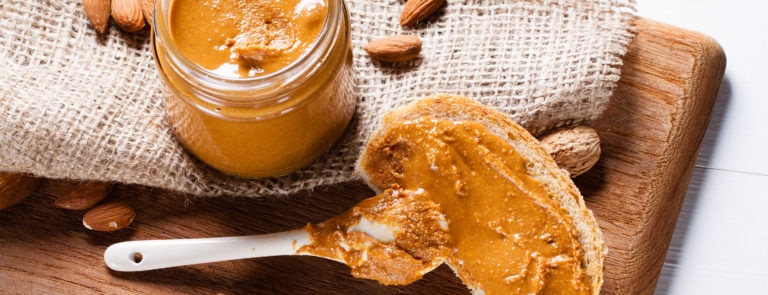10% off £35
Fenugreek: Benefits, usage, dosage and side effects

What is fenugreek?
Cultivated in southern Europe, western Asia and northern Africa, the fenugreek plant has been used since ancient times.1
The herb, known as methi in India, is a commonly used ingredient in Indian cooking, and ground fenugreek seeds are often used to add a sweet, nutty flavour to food products.2
The ancient Egyptians believed it could increase milk flow for nursing mothers and it’s still used for this purpose today.
Summary
- The fenugreek plant provides a wide range of health benefits
- Its sweet, nutty flavour is often used in cooking to flavour foods
What does fenugreek do?
Although fenugreek is used for a wide variety of health benefits, the exact reasons for its effects on the body are still unclear.
For example, we’re not quite sure why fenugreek helps promote milk flow for breast-feeding women.3 It could be because it’s a diaphoretic – which means it induces sweating – and, structurally, breasts resemble modified sweat glands.4,5
It might also be to do with the phytoestrogens that fenugreek contains – plant chemicals that have a similar effect in the body to oestrogen – or the cause could be psychological.6
In the stomach, fenugreek appears to slow the absorption of sugar and stimulate the release of insulin, both of which can help to maintain normal blood sugar levels.7 Fenugreek also contains plant compounds called saponins, which may play a role in sexual arousal.8 It is also thought that fenugreek is good for lowering cholesterol - this is believed to be due to its high-fibre content.9
Summary
- Fenugreek is a diaphoretic – meaning it induces sweating in the body
- It also contains phytoestrogens that work similarly to oestrogen
- Fenugreek appears to help maintain normal blood sugar levels and cholesterol
- It is also thought to have aphrodisiacal properties
What are the benefits of fenugreek?
While more research is necessary, studies have demonstrated the numerous potential health benefits of fenugreek.
Read on to find out how fenugreek might help you.
-
Breast milk production
Mothers often use fenugreek for breastfeeding, as it has been found to increase milk supply in some women.
A 2011 trial investigated whether a herbal tea containing fenugreek might help stimulate milk production in mothers. New mothers were given either fenugreek tea, a herbal tea which did not contain fenugreek, or no tea at all.
The results found that the women given the fenugreek tea produced more breast milk than the other two groups.
As a result, the babies in this group lost the least weight following birth and returned to their birth weight quickest.10 However, the trial was small, so more research needs to be done.
Handpicked content: The top 10 supplements to take while breastfeeding
-
Maintaining normal blood sugar levels
Enjoying fenugreek in your meals could help your body maintain healthy blood sugar levels. The effects of using fenugreek for blood sugar control was investigated in a 10-day clinical trial.
People with type1 diabetes were split into two groups. One group was served meals with fenugreek powder added, the other wasn’t.
The results showed that the participants who were put on the fenugreek diet had significantly lower blood sugar levels than the control group. What’s more, their total and bad cholesterol levels were reduced, too.11
Handpicked content: 4 blood sugar balance tips
-
Appetite management
In one US clinical trial, 18 obese adults were randomly assigned a standard breakfast, one that included 4g of fenugreek fibre, or one which contained 8g of fenugreek fibre.
Over the course of the next few hours, they were asked to rate how hungry, satisfied or full they felt every 30 minutes. The adults that ate the breakfast containing the highest dose of fenugreek fibre reported feeling fuller.
Their hunger ratings were also lower than the other groups as lunchtime approached, which meant they consumed fewer calories. The research suggests that using fenugreek for weight loss could be beneficial, but more research needs to be done before we can draw any firm conclusions.12
Handpicked content: Your guide to appetite suppressants
Summary
- Drinking fenugreek tea may support breast milk production
- Research suggests adding fenugreek to your meals could help lower blood sugar levels
- Fenugreek may also help with appetite control by increasing feelings of fullness and reducing hunger
Fenugreek nutrition
Fenugreek seeds are nutritious, providing a good amount of fibre and minerals, including iron and magnesium.
1 tbsp (11g) of whole fenugreek seeds contains the following nutrients:13
| Energy | Carbs | Fibre | Protein | Fat | |
|---|---|---|---|---|---|
| Amount | 35kcal | 6.4g | 2.7g | 2.5g | 0.7g |
| % of RDA* | 2% | 2% | 11% | 5% | 1% |
And the following minerals:14
| Energy | Carbs | Fibre | Protein | Fat | |
|---|---|---|---|---|---|
| Amount | 35kcal | 6.4g | 2.7g | 2.5g | 0.7g |
| % of RDA* | 2% | 2% | 11% | 5% | 1% |
Fenugreek dosage and preparation
If you’re wondering how much fenugreek to take, there are many ways to include it in your diet.
How to use fenugreek seeds
One of the most common ways to prepare fenugreek seeds is by soaking them in a glass of water overnight. The soaked seeds can then be eaten in the morning on an empty stomach.15
If you find the taste too bitter, you can also boil them in water to reduce the unpleasant taste and make them easier to chew and swallow.16
How to make fenugreek tea
To make tea with fenugreek, place 1-3 teaspoons of fenugreek seeds in a cup of boiling water. You can drink fenugreek tea up to 3 times a day.17
Fenugreek capsules
Since fenugreek seeds are quite bitter, you may prefer to take a fenugreek supplement in capsule or tablet form.
There is no single recommended dose for fenugreek tablets or capsules, since you will need a different amount depending on the type of supplement as well as the specific benefits you’re after.
However, it is advised to begin with taking a 500 – 600mg supplement each day, taking it either before or with a meal.
Cooking with fenugreek
Fenugreek is often used in Indian, North African and Middle Eastern cuisine, so there are many recipes with fenugreek for you to try out.
Here are a few ideas:
- Add fresh or dried fenugreek leaves to your favourite sauces, curries and vegetable dishes.18
- Combine fenugreek powder with spices like cumin and coriander to make your own aromatic spice blend for a delicious curry, lentil soup or marinade.19
- Pan roast fenugreek seeds over a medium heat and add them to roasted vegetables, soups or salads for an enhanced flavour.20
Fenugreek side effects
Fenugreek is likely to be safe when taken in amounts normally found in foods. However, it should not be used by children as a supplement.
Potential side effects include diarrhea, stomach upset, bloating, and other digestive tract symptoms. On rare occasions it has been known to cause dizziness and headaches.21
Last updated: 19 May 2022
- https://www.ncbi.nlm.nih.gov/pmc/articles/PMC4894452/
- https://www.spiceitupp.com/what-are-fenugreek-and-how-to-eat-fenugreek-seeds/
- https://www.ncbi.nlm.nih.gov/books/NBK501779/
- https://www.sciencedirect.com/science/article/pii/S1658077X15301065
- https://www.hindawi.com/journals/ecam/2018/2418673/
- https://www.ncbi.nlm.nih.gov/pmc/articles/PMC6505335/
- https://www.diabetes.co.uk/natural-therapies/fenugreek.html
- https://pubmed.ncbi.nlm.nih.gov/21312304/
- https://vikaspedia.in/health/nutrition/nutritive-value-of-foods/fenugreek-reduces-blood-sugar-and-cholestrol
- https://pubmed.ncbi.nlm.nih.gov/21261516/
- https://pubmed.ncbi.nlm.nih.gov/2194788/
- https://pubmed.ncbi.nlm.nih.gov/19353539/
- https://nutritiondata.self.com/facts/spices-and-herbs/189/2
- https://nutritiondata.self.com/facts/spices-and-herbs/189/2
- https://www.savoryspiceshop.com/fenugreek-seeds
- https://www.savoryspiceshop.com/fenugreek-seeds
- https://www.verywellfamily.com/fenugreek-breastfeeding-and-increasing-breast-milk
- https://www.masterclass.com/articles/how-to-cook-with-fenugreek
- https://www.masterclass.com/articles/how-to-cook-with-fenugreek
- https://www.spiceitupp.com/what-are-fenugreek-and-how-to-eat-fenugreek-seeds/
- https://www.nccih.nih.gov/health/fenugreek














